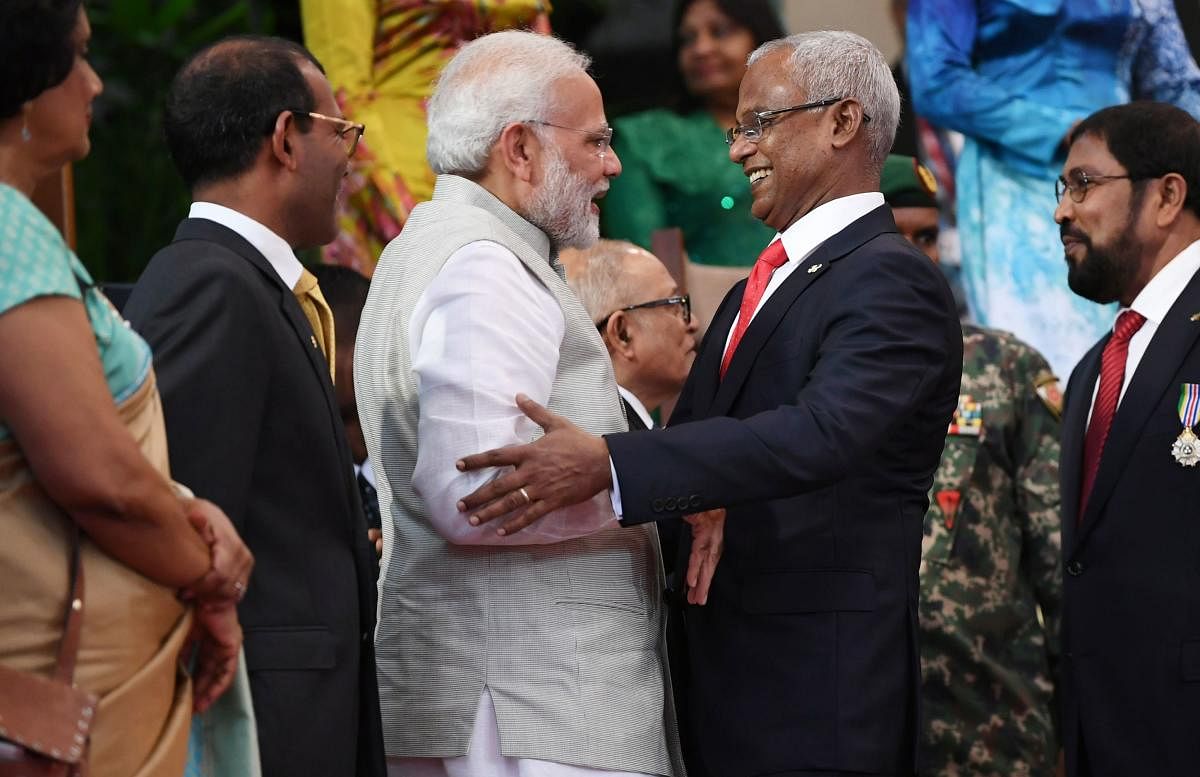
Prime Minister Narendra Modi’s visit to the Maldives to attend the swearing-in of its new President Ibrahim Mohamed Solih, marks an important milestone in India-Maldives relations. It was the first time in seven years that an Indian prime minister visited the archipelago. A new chapter in India-Maldives relations could open up if Delhi’s response to the signals coming out of Male now is swift, strong and sensitive. The new Maldivian government is clearly unhappy with former president Abdulla Yameen’s strong ties with China. It views that relationship as having gone against Maldivian interests by emptying its coffers and pushing the country into huge debt. Solih has promised to investigate the terms under which deals with Chinese companies were sealed as well as the embezzling of Maldivian funds by officials at all levels of government. The Solih government is clearly hoping to steer the archipelago away from China’s stifling embrace. Importantly, it is looking to India for support in its efforts to improve Maldivian infrastructure. Delhi must quickly put in place a multi-faceted strategy to rebuild relations with the archipelago.
India’s bad experience with Sri Lanka is instructive in this regard. When Maithripala Sirisena took charge as Sri Lanka’s president in 2015, the Modi government assumed that the island’s relations with India would improve automatically. India’s strong support to Sirisena in the elections that ousted the pro-China Mahinda Rajapaksa was expected to prompt Colombo to sever, or at least weaken, ties with China. That did not happen. Instead, Sino-Sri Lankan relations deepened, with a debt-ridden Sri Lanka handing over the strategic Hambantota port’s operation to the Chinese. Consequently, China’s clout in the island-nation grew. This could happen in the Maldives, too, if India is not proactive. It needs to extend financial and other support to the Maldivian government and not wait for the latter to break ties with China. Delhi must present itself as a benign option, a neighbour that supports not just the Maldivian government but its people, too. Its role in the Maldives should be sensitive to the latter’s security and sovereignty concerns as a small state.
Maldives is an important neighbour of India not only because of its proximity to the Indian coast but also its location in the Indian Ocean, near vital sea lanes through which much of India’s and East Asia’s trade, especially oil imports, is carried. Additionally, India could showcase its relations with Maldives to convince other South Asian countries of its expertise and support. If New Delhi plays its cards right in the Maldives, Modi’s visit to the archipelago could mark the start of India rolling back China’s influence in South Asia.